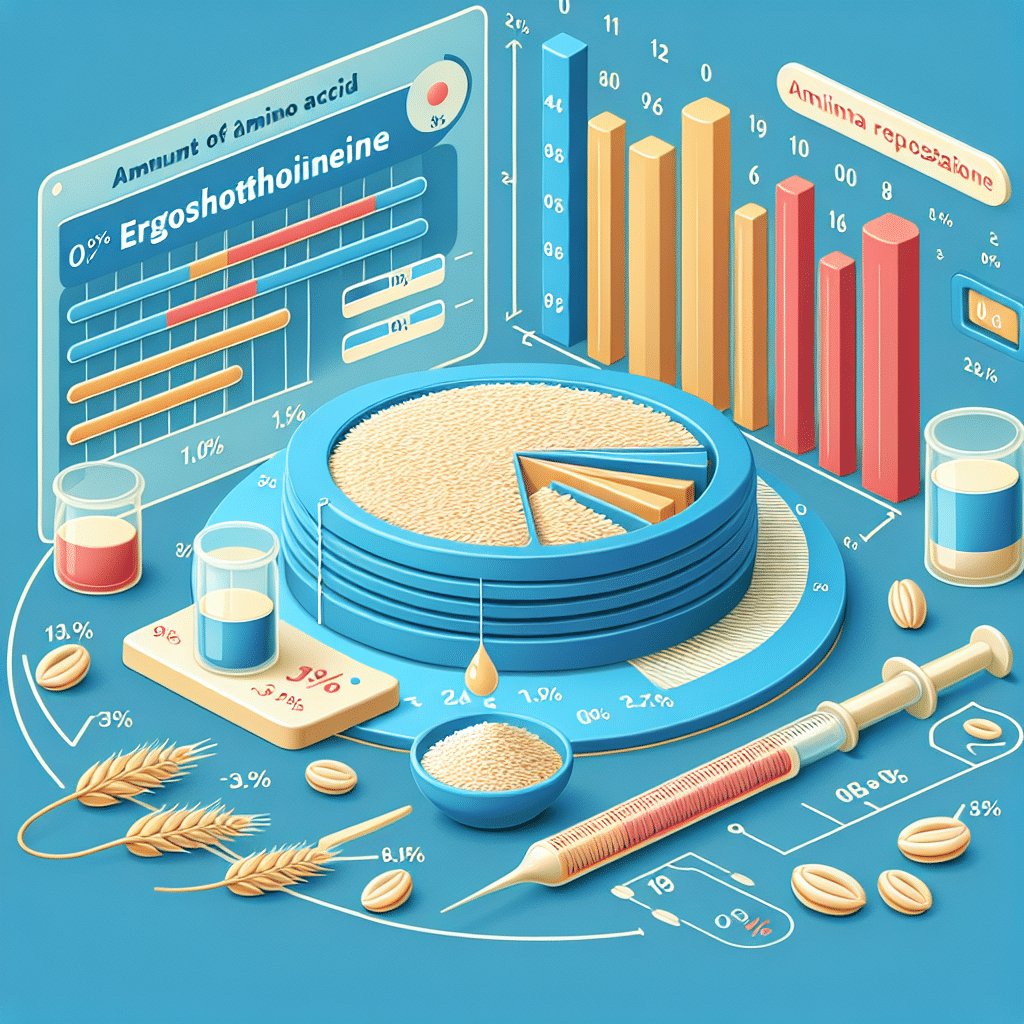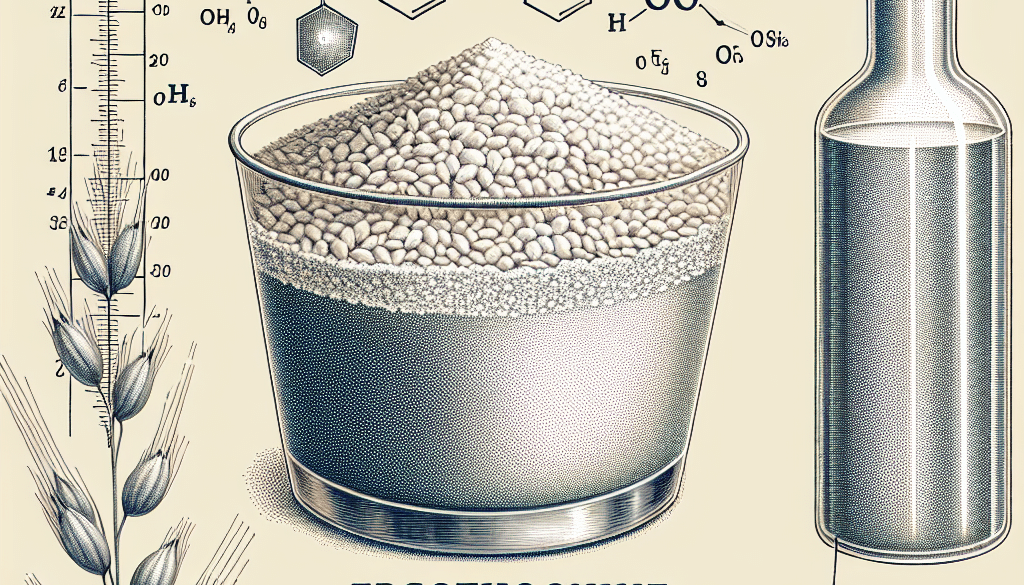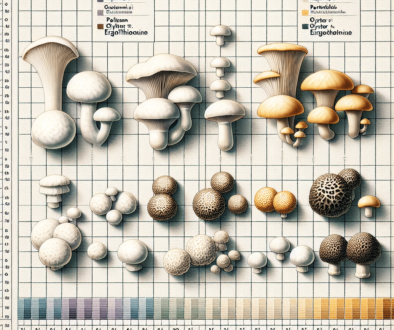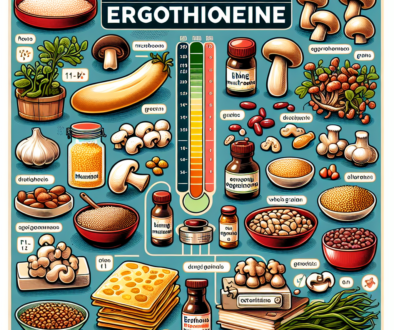How much ergothioneine is in oats? Discover More
Table of Contents
- Ergothioneine in Oats: Unveiling the Nutritional Profile
- Understanding Ergothioneine
- The Significance of Ergothioneine in Diet
- Ergothioneine Content in Common Foods
- Ergothioneine in Oats: What Does the Research Say?
- Factors Affecting Ergothioneine Levels in Oats
- Enhancing Ergothioneine Intake Through Diet
- Conclusion: The Role of Oats in Ergothioneine Consumption
- Discover ETprotein’s High-Quality Protein Products
Ergothioneine in Oats: Unveiling the Nutritional Profile

Ergothioneine, a naturally occurring amino acid, has garnered significant attention due to its potential antioxidant properties and role in human health. As consumers become increasingly health-conscious, the interest in the ergothioneine content of various foods has risen. Oats, a staple grain in many diets, are well-known for their health benefits. This article delves into the ergothioneine content in oats and explores the implications for dietary choices.
Understanding Ergothioneine
Ergothioneine (ET) is a sulfur-containing amino acid found in various dietary sources. Unlike other amino acids, ergothioneine is not incorporated into proteins but exists in its free form in cells, particularly in those that are exposed to high levels of oxidative stress. It is believed to function as an antioxidant and cytoprotectant, potentially playing a role in preventing cellular damage caused by reactive oxygen species (ROS).
The Significance of Ergothioneine in Diet
The interest in ergothioneine has increased as studies suggest its importance in reducing the risk of chronic diseases such as cardiovascular disease, neurodegenerative disorders, and certain types of cancer. Ergothioneine’s potential to mitigate oxidative stress and inflammation makes it a compound of interest in the realm of nutrition and preventive health care.
Ergothioneine Content in Common Foods
Before we specifically address oats, it’s essential to understand the broader context of ergothioneine in the diet. Ergothioneine is found in various foods, with mushrooms being one of the richest sources. Other dietary sources include meat (especially from animals that have consumed ET-rich plants), certain types of beans, and grains. The ergothioneine content in these foods can vary significantly based on factors such as soil content, growing conditions, and processing methods.
Ergothioneine in Oats: What Does the Research Say?
When it comes to oats, the ergothioneine content has not been as extensively studied as in mushrooms or meat. However, oats are known to contain a variety of antioxidants, including avenanthramides, which are unique to this grain. While oats may not be the richest source of ergothioneine, they do contribute to the overall intake of this amino acid in a balanced diet.
Research on the specific ergothioneine content in oats is limited, and available studies offer varying results. Some studies suggest that the ergothioneine content in oats is relatively low compared to other grains such as barley or wheat. However, the exact amount can depend on the oat variety, growing conditions, and processing methods.
Factors Affecting Ergothioneine Levels in Oats
- Soil Composition: The selenium and sulfur content of the soil where oats are grown can influence the ergothioneine levels in the crop.
- Genetic Varieties: Different oat cultivars may have varying capacities to synthesize or accumulate ergothioneine.
- Agricultural Practices: Farming techniques, including the use of fertilizers and crop rotation, can affect the nutritional profile of oats.
- Processing and Storage: The way oats are processed and stored post-harvest can impact the retention of ergothioneine and other nutrients.
Enhancing Ergothioneine Intake Through Diet
For individuals looking to increase their ergothioneine intake, incorporating a variety of ET-rich foods into the diet is advisable. While oats may contribute to this intake, relying on higher ergothioneine sources such as mushrooms, kidney beans, and certain meats is more effective. Additionally, consuming a diet rich in antioxidants and other protective compounds is essential for overall health.
Conclusion: The Role of Oats in Ergothioneine Consumption
In conclusion, while oats are a nutritious grain with a host of health benefits, they are not the most significant source of ergothioneine. However, they can still play a role in a diet that aims to increase the intake of this amino acid. It’s important to focus on a diverse diet that includes various ergothioneine-rich foods to ensure adequate consumption of this potentially beneficial compound.
Discover ETprotein’s High-Quality Protein Products
If you’re looking to supplement your diet with high-quality protein and ergothioneine, ETprotein offers a range of products that can meet your needs. Their selection includes organic plant-based proteins and L-(+)-Ergothioneine in various grades suitable for different industries. Whether you’re a manufacturer, distributor, or consumer, ETprotein’s products are designed to support your health and wellness goals.
About ETprotein:
ETprotein, a reputable protein and L-(+)-Ergothioneine (EGT) Chinese factory manufacturer and supplier, is renowned for producing, stocking, exporting, and delivering the highest quality organic bulk vegan proteins and L-(+)-Ergothioneine. They include Organic rice protein, clear rice protein, pea protein, clear pea protein, watermelon seed protein, pumpkin seed protein, sunflower seed protein, mung bean protein, peanut protein, and L-(+)-Ergothioneine EGT Pharmaceutical grade, L-(+)-Ergothioneine EGT food grade, L-(+)-Ergothioneine EGT cosmetic grade, L-(+)-Ergothioneine EGT reference grade and L-(+)-Ergothioneine EGT standard. Their offerings, characterized by a neutral taste, non-GMO, allergen-free attributes, with L-(+)-Ergothioneine purity over 98%, 99%, cater to a diverse range of industries. They serve nutraceutical, pharmaceutical, cosmeceutical, veterinary, as well as food and beverage finished product distributors, traders, and manufacturers across Europe, USA, Canada, Australia, Thailand, Japan, Korea, Brazil, and Chile, among others.
ETprotein specialization includes exporting and delivering tailor-made protein powder and finished nutritional supplements. Their extensive product range covers sectors like Food and Beverage, Sports Nutrition, Weight Management, Dietary Supplements, Health and Wellness Products, and Infant Formula, ensuring comprehensive solutions to meet all your protein needs.
As a trusted company by leading global food and beverage brands and Fortune 500 companies, ETprotein reinforces China’s reputation in the global arena. For more information or to sample their products, please contact them and email sales(at)ETprotein.com today.












